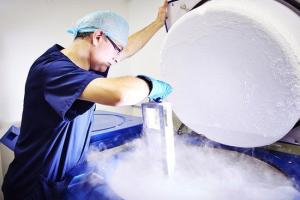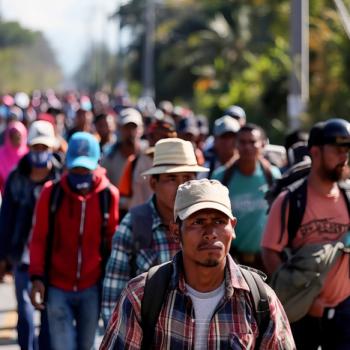
On February 16, the Alabama Supreme Court ruled that “embryos created through in vitro fertilization (IVF) should be considered children.” While this should not be news to Catholics, the ruling caused several clinics in Alabama to pause IVF services while awaiting further legal and liability review. What does this mean for those couples that have struggled to conceive and pinned their hopes on IVF? Let’s take a look.
How did we get here?
Depending upon the number of embryos created, the parents may be faced with a challenge of deciding how many to implant. This could be a double-edged sword as the potential for multiple births when more than 2 embryos are implanted is significantly higher. Depending on the number, the parents could be faced with a decision to abort one or more births. A standard procedure with IVF involves freezing (cryopreservation) any “extra” embryos that were not implanted into the mother initially. These embryos are stored for later use without having to go through hormone treatments and/or surgeries. All of these decisions have moral implications down the line. In the case of the frozen embryos, the ruling by the Alabama Supreme Court now concretely states what we as Catholics have believed all along – these are God’s children and should be treated as such.
The issue the Alabama Supreme Court heard was the result of a mishap in the fertility clinic located in a hospital. Frozen embryos were destroyed when accidentally dropped on the floor. The families of the destroyed embryos sued the fertility clinic and the hospital for Wrongful Death of a Minor – an Alabama statute. The case was dismissed in Trial Court saying the statute did not apply, and when appealed to the Supreme Court, the court decided it does apply:
“to all unborn children without limitation. And that includes unborn children who are not located in utero at the time they are killed.”
This decision clearly identified the frozen embryos as human children.
IVF Services Paused
Needless to say the decision caused great consternation amongst the “reproductive health care” or pro-abortion community. Some have stated that this is the result of the Dobbs decision by the US Supreme Court that struck down the Roe v Wade standard. The crux of the issue is that the decision allows legal action to be taken against medical professionals providing IVF services. The Alabama legislature quickly passed a bill that limits the liability of these medical professions from “civil and criminal liability for embryo loss or damage during IVF treatments.” The bill is limited in scope and as a result only a few of the clinics resumed offering services while many still work with their Legal departments to better understand the liability they incur upon re-opening.
Morality Issues
In a previous article I outlined some of the moral issues related to IVF. The main issues revolve around:
- Since the potential for multiple births is significantly higher with IVF, there may be the situation where doctors recommend selectively aborting one or more births in order for the remaining embryos to survive. As God’s children it was God that gave them life and ONLY God that could take life away.
- There is still the issue of any “extra” embryos that are frozen for later use. The view of the Catholic Church is that allowing these embryos to remain in a frozen state indefinitely violates the basic dignity and respect of the person. I am sure that many Catholic families, eager to have a child through the IVF process may not know this. This situation could also potentially cause some challenges in the parent relationships should the parents not be on the same page related to the disposition of the embryos if they choose not to implant at a later date. As I had mentioned in the article linked above I had an opportunity to work with a family that was living with this very issue and were dealing with it as best they could.
The IVF process was specifically designed to help those couples who struggled to conceive and have a child. The Alabama Supreme Court got it right in my opinion in standing for the life of the child, but the desire to fulfill the call as parents can be very strong. For those that are considering IVF, I strongly suggest that you fully understand not only the process, but the moral implications of the process and include a discussion with your Pastor for any questions.
Comments are not only welcome, but they are encouraged. As always, I will try and respond quickly. It’s important to me to respond if it is important enough for you to comment.
God Bless














